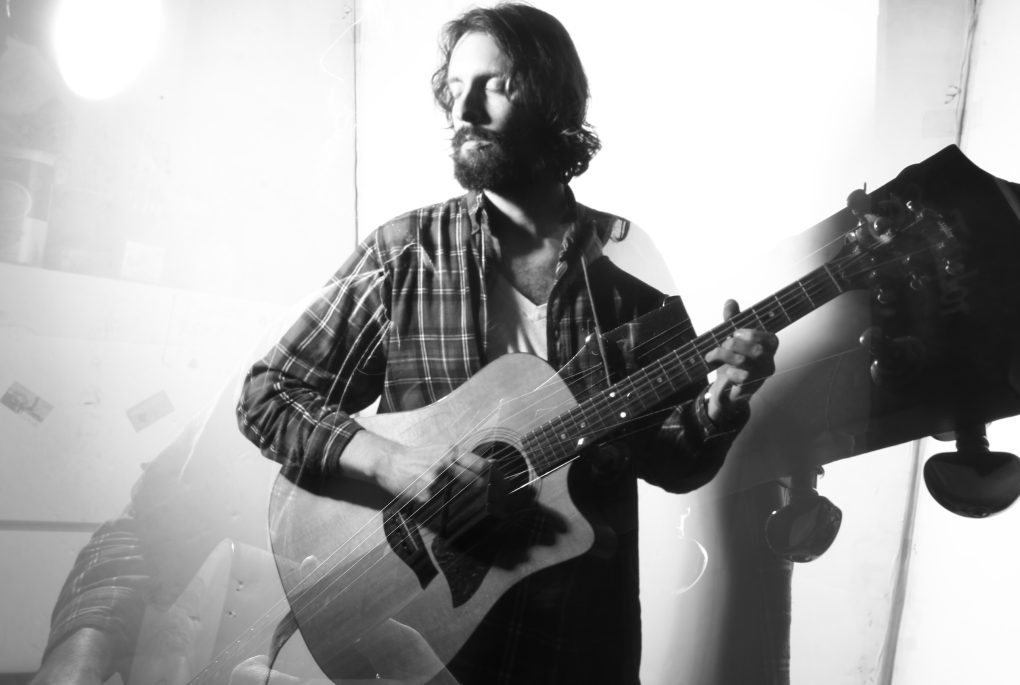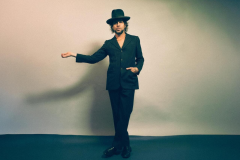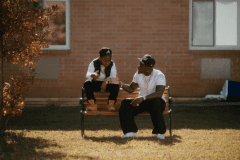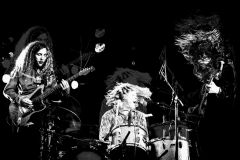Transformation, the new LP from songwriter, composer, and vocalist Grant Swift, builds on the softly psychedelic folk-rock and hook-drenched power pop of his First Elephant release to deliver the listener a truly transformative experience. Swift’s knack for crafting irresistible melodic hooks and his soaring, ethereal voice are still here in spades of course. On this new release Swift has stripped his sound to the core, allowing his songwriting and virtuosic acoustic guitar playing to come to the fore. Yet, from its simplicity comes a grace: the simple, enchanting beauty of immaculate composition and warm, organic performance merging in a work of captivating beauty.
Today Swift has released one of the singles off Transformation (out April 28), “God Of Mine.” Swift says, “‘God Of Mine’ is about belief. It’s about the sort of reflectiveness that enables anger at life, at circumstance, at inequality, unfairness, injustice. In many ways, this is a dark, melancholy song. In many ways it is a funny song – I think of my lyric for an “extended warranty” for the polluted Earth. But I also see it as a song about hope and the perseverance of the human spirit. Deep anger and profound joy are two sides of the same coin, I think. Without those wells of anger and joy surrounding sheer existence itself, it’s not clear to me that we would really strive for anything at all. And striving is, I believe, essential to making the world a better place.”
After the process of creating First Elephant, Swift found that if he was going to elevate his writing he needed to turn to simplicity. He found the antidote to the swirl of modernity by venturing to an olive farm and vineyard in Italy, trading field work for room and board. He finished writing, recorded, and mixed Transformation abroad.
“I took a whimsical and spontaneous approach” says Swift. “A lot of the sounds on the record are things I recorded on my phone, or on a small handheld recorder while out in the world, like a foghorn in Japan, or waves on a beach. The “snare” drum on “Be There” is actually just the sound of turning off a small practice amp of mine. So, this album is also more of an exercise in creative limitation.” All of the instruments on the record – apart from the lovely strings by Patricia Santos (Cello), Lavinia Pavlish (Violin) and Laura Sacks (Viola) that grace several tracks – were played by Swift. Everything was recorded and mixed by Swift in his Brooklyn apartment, a bathroom in Paris, and an Italian basement .
“I believe the record feels more intimate in part because I didn’t really share the songs with anyone ahead of time” he continues. “I actually went to lengths to not have my fiancée hear it while I was working on it, for fear that any insight or feedback, even if it was positive, could interfere with the process of making it in a pure and efficient way. I had my friend James Zaner master it so I could finally get a separate set of ears listening to everything at the end.”
While Swift is known to dabble in the abstract, with Transformation the lyrics, melody, timbre, and instrumentation coalesce, drawing intangible feelings and ideas into a space where they find coherence. We find change a major theme throughout the record, along with a meditation on how personal perspectives and worldviews, shape the experience of transformation to describe what we call “destruction” or “creation.”
Despite the metaphysical philosophical underpinnings, Swift has humble hopes for the record. “Ultimately, I hope the album inspires” he says. “What else is music good for?”
Photo Courtesy: Eat The Cake NYC









Social Media